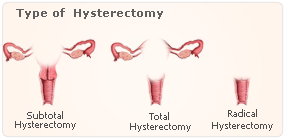
Estrogen Hormones have been introduced to the menopausal and postmenopausal bodies of women or several years in what was thought to be the safe treatment of menopausal symptoms which can make a women's life unbearable. Unfortunately such estrogen hormones have been at the forefront of recent research as more evidence surfaces about the cancer risks surrounding them. Past research has already proven the links between alien estrogen hormones and endometrial and breast cancers. As both these cancers are hormone based such research has pushed medical professionals to question the influence of estrogen hormones on other types of hormonal cancers, namely ovarian cancer.
From 1982 to 1996 a questionnaire based study was carried out by The American Cancer Society. Questionnaires were filled out by as many as 211,581 women when the study first started and all the women involved were in postmenopause, without suffering from a history of cancer, ovarian surgery, or hysterectomy. Researchers were particularly interested in learning more about the use of replacement estrogen hormones in popular hormone therapies and their possible links to cancers, especially ovarian cancer, which is yet to be understood with this type of menopause treatment. Researchers compared women who had never used replacement estrogen hormones with those that had used them in the past and those that were currently undergoing estrogen hormone therapy.

Over the 14 that researchers followed the subjects, 944 ovarian cancer deaths occurred. Women who were using replacement estrogen hormones to treatment menopause symptoms in 1982 were more likely to die from ovarian cancer than those that had never used the treatment. While comparatively, a slight risk of ovarian cancer was recorded for those who had previously undergone hormone therapy treatment before the questionnaire was completed. Subjects who had taken hormone replacement therapy to treat menopause symptoms for ten years or more posed the highest risk of developing ovarian cancer.
While the research team noted that those women who had previously taken replacement estrogen hormones cut the risk of ovarian cancer with every year they were off the medication, it was clear that any use of hormone therapy during or after menopause posed some risk. Calculations show that it would take a woman 29 years without replacement estrogen hormones to cut the risk of ovarian cancer to what it would have been had she never taken the therapy.
Although replacement estrogen hormones can have many benefits from women finding menopause and postmenopause difficult, this research highlights the problems that come with introducing extra estrogen hormones into women's body's. As with many treatment the pro's and con's of replacement estrogen hormones need to be discussed for each woman individually to make sure that the problems that come with menopause and post menopause are severe enough to warrant the risk of possible cancers. It's important for women to seek professional medical help in order to make the right decision.